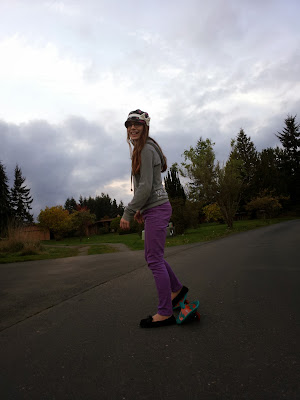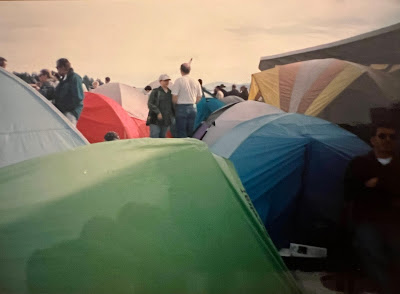"How are you?" ... Stressors and gifts of friendship
I can relate, I told her. Not long after John died, I was
invited to a holiday party. I wanted to go – I wanted to be surrounded by warm
laughter and smiles, to soak in the good energy. But I dreaded the pitying
looks and meaningful “How are yous.”
Finally, I got a marker and an 8.5”
by 11” piece and wrote, “I’m ok, thanks! Can we talk about you?” I taped the paper
to my chest and went to the party.
It worked. I saw people catch my eye, begin to assume crestfallen
demeanor, then take in the sign and – smile! I had an evening of laughter and
escape, and didn’t have to talk about myself.
One of my mother’s key pieces of parenting advice,
especially for adolescents, is: make statements, don’t ask questions. I find this
nugget of wisdom applies to approaching people in any kind of crisis
(adolescence is one long crisis, right?). Even a question as seemingly benign
as “How are you” places a demand. To respond, one has to find honest but
succinct words for a bewildering array of emotions -- or deftly deflect the
question, or lie. None of which is stress-free. By contrast, “It’s nice to see
you,” and a hug or a smile, gives something and demands nothing.
When I was diagnosed with breast cancer in June, I knew from
experience that I wanted to deflect questions before they came my way. The potential for questions was limitless: How
did you find out? How big is it? How bad is it? Do you have to get chemo? What
did the doctors say? What’s the prognosis? When will you start treatment? Where
are you getting treatment?
I didn’t know the answers to most of the questions myself,
and hearing them over and over was the last thing I needed. I wanted
to put my limited energy and resources into learning about the disease and making
good decisions, giving my children the time and attention they needed, and keeping
my body and spirit strong.
I thought of a small gift from my friend Sarah Conarro, a print she'd made depicting two
hands, palms up, and the words, “Ask for what you need.” The words echoed in my mind as I began sharing the news of my diagnosis –
in writing, where I could slow the dialog. I asked for people to refrain from asking me any
questions.I'm glad I asked, and I'm grateful people were so respectful of the request.
So what can a person do to help a friend in crisis? I don’t have any brilliant ideas, but I have experienced remarkable and sustained gifts of friendship and kindness over the past three years, which form the inspiration for the following list.
How to be a Great Friend to Someone in Need
- Check in periodically with a note or text or call or card or visit, depending on that person’s preferred mode(s) of contact. Follow their lead when it comes to talking about the heavy stuff.
- Just listen openly -- don’t feel you have to offer any wisdom, reassurance or judgment.
- Distract them with a story, a joke, a little project, a game of cards, a walk or a run. You don’t have to be sad or serious. Give them a little break from sadness.
- Bring some food, preferably in a disposable dish so they don’t have to worry about returning it (or return to pick up your dish and check in again). A three-course meal or a chocolate bar, it's all good.
- Instead of asking, “What can I do to help?” (another bewildering question! Plus it’s so hard to ask for help) try to observe what they need and figure out where you can help -- without overtaxing yourself. Pick up their child at daycare; replace the broken headlight on their car; do some of the kid-shlepping; bring dinner every Friday; set up dates to meet at the gym; do after-school art projects with their child; help them plant a garden; drop off hand-me-downs …
- Allow them to care for you, too. It gives them an opportunity to get out of their own world and to feel needed.
- Be there for the long haul. Death, disease, divorce – the practical and emotional repercussions of these crises can last a long, long time. I remember telling a friend early on, “It’s a marathon, not a sprint.” That has proven true.
 |
| Rosie with her Ripstick -- I can't even stand on it but she seems to have mastered it in four days. |
 |
| Excited to be together. |
 | |||
Ninety minutes and 65 pages of instructions later, Alder had assembled the Lego space shuttle Rosie brought him. He has now been alive longer without John than with him.
|
 |
| Wallace Falls, reached last weekend by a crowded but beautiful trail. |




It's nice to see you (on your blog at least), Becca. Consistently great, thought-provoking writing. Embarrassing confession: I got a RipStik on my 45th birthday. Call it a human-powered midlife crisis. But it's pretty fun once you get the swing of it!
ReplyDeleteJohn Ryan in Seattle
Thanks, John! I meant to tell you, I heard your great story a few weeks ago (um, something about hospital error I think--anyway, it was something I could relate to and remember having a conversation with the radio about).
ReplyDeleteYou are the hippest RipStiker around, dude! Or at least, the oldest!
Becca